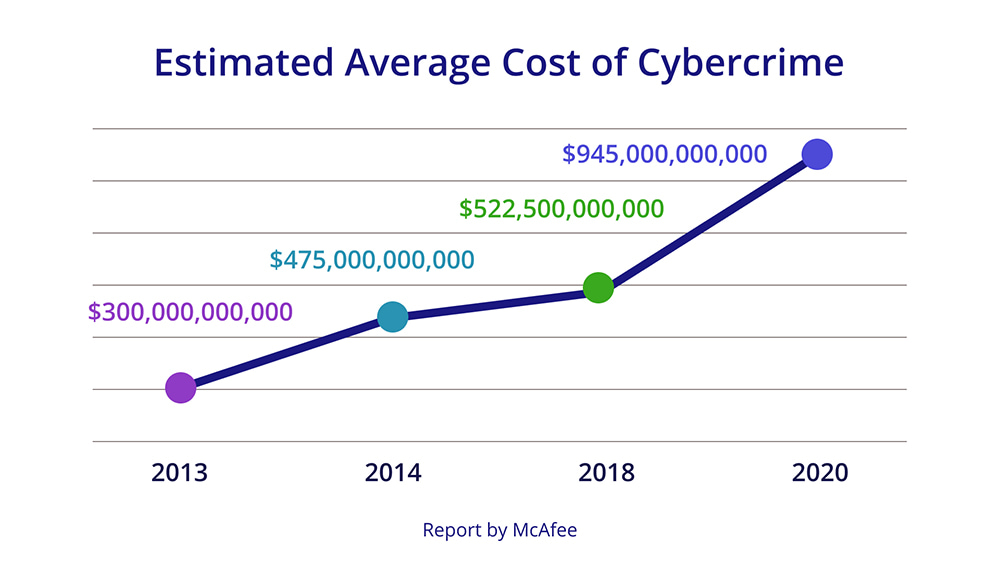Poker is not only entertainment but also an opportunity to win some cash. Unfortunately, there are people who are absolutely not interested in the fun part but seek to get money in any way. So we have to deal with such a phenomenon as online poker fraud. In this article, we are to figure out different kinds of fraud and ways to prevent them.
Why is it Important
At first sight, online poker operators could ignore cheating because they get their rake anyway. But this approach causes a great reputation loss. Playing with a cheater brings no pleasure, despite losing money.
However, some kinds of fraud cause money loss to an operator directly. By 2020 the cost of global cybercrime reached over $1 trillion. The growth of popularity of online poker during the pandemic period also drew the attention of scammers to it. According to the Q1 2020 Fraud and Abuse Report by Arkose Labs, the overall attack level in the online gaming industry grew by 30%.

So any online poker operator has to counteract fraudster activity to save its money and reputation.
Types of Online Poker Fraud
Let’s review the most popular methods of scammers.
Multi-Accounting
As it goes in the Arkose Labs report, the most growth of attacks in iGaming is connected with the new account fraud. There are some specific ways to use multi-accounting in online poker.
Gnoming
It’s one of the most popular schemes of cheating in online poker. A person uses two or more accounts for playing at one table. The scammer sees more cards and has more chances to win.
Chip Dumping
Multi-accounting could be used not only for dishonest advantage in a game but only for dumping money from one account to another. It could be a way of laundering illegal income (e.g. to get money from a stolen credit card).
Bonus Abuse
Many online poker operators offer no-deposit bonuses to attract new players. Scammers can create many accounts to get these bonuses and dump them into one of them and then cash out.
Blackmailing
In some countries, there is a law on responsible gambling. A person can mark themselves as having gambling problems and an operator must limit his playing activity. Fraudsters often declare themselves as problem gamblers, log in to an alternative account, and break the limit. After that, they blame the operator for violating the law and demand payment for not-snitching.

Colluding
Two or more scammers can play at one table in cooperation. They know each others’ cards and act in a specific way to lure money from honest players.
Poker Bots
There is software that can play online itself choosing the most optimal tactics. A real player can beat it but a bot has some dishonest advantages. It is never tiring or in excitement and has no emotions. It practically always wins over long distances.
Hacking
It’s the most difficult but the most dangerous method of fraud. Cracking the client application seems to be useless because the platform doesn’t send any information the player is not supposed to know such as his opponents’ cards. But a scammer could get illegal access to the server information and see all the cards.
Preventing Online Poker Fraud
There is no universal way for preventing scamming. Every single countermeasure can be bypassed. Therefore you should use them in a complex.
KYC
In many countries, operators must use KYC tools. A complex user verification helps to make sure that the player is the person they claim to be. The need to upload documents complicates using multi-accounting and bots.
Player Identification
You should keep data of all logging into the game. Every time a person tries to log in you should check his IP address, device, browser fingerprint, etc. Then the system should check if there are matches in the database. If there are two or more players using the same device or IP it’s a ground to suspect multi-accounting.
Also, sometimes when a player loses a lot of money and becomes too upset they report a card or an account theft. In this case, the legend goes that a thief played poker but not the card/account owner. Log-in checking and KYC help to discover the deception and prevent false refund requests.

Password Strength Demand
Despite creating accounts, scammers can breach the accounts of other players. To avoid it, you ought to set requirements for password length, small and capital letters and special symbols usage. Also, two-factor authentication could be useful too.
Game Analysis
There are a number of fraud signs in players’ behaviour. You can compare the win chances of every hand of a player and their actual statistics. If there are long sessions with a very high and stable success it’s a ground to suspect bot usage. Collusion also has specific signs. You just need to use special software to analyse and detect them. The deep game analysis also allows the identification of specific playing patterns (bet size manipulations, hand strength used to play, etc.) that could lead to a bot or a botnet discovery.
For example, the EvenBet anti-fraud system uses the scoring of suspicious actions. If the score is high enough the system signals to the administration or kicks out the player automatically (depends on your configuration).
How to Punish a Fraudster
If fraud is obvious and can be easily proved you can just suspend the player and report it to the police. But unfortunately, often you cannot be sure if a player is a fraudster. In this case, you can set some restrictions that prevent cheating.
For example, the EvenBet anti-fraud system allows you to restrict playing at the same table or in the same tournament for particular players if you suspect multi-accounting or colluding.
Mind the Security
To prevent online poker fraud you should find the most secure server and database solution. Also, you should organise the management carefully. Configure the access levels for your employees and assign clear responsibility to them.
EvenBet Gaming pays particular attention to the issue. We have ISO 27001 certification that proves that we manage information security according to international best practices.
EvenBet Gaming integrates anti-fraud solutions for the clients’ projects and provides support. Our experts are always ready to help to discover the dishonest game in any difficult cases. You are welcome to ask for the details on the EvenBet poker platform.


 Upd: 15 March 2024
Upd: 15 March 2024 






















